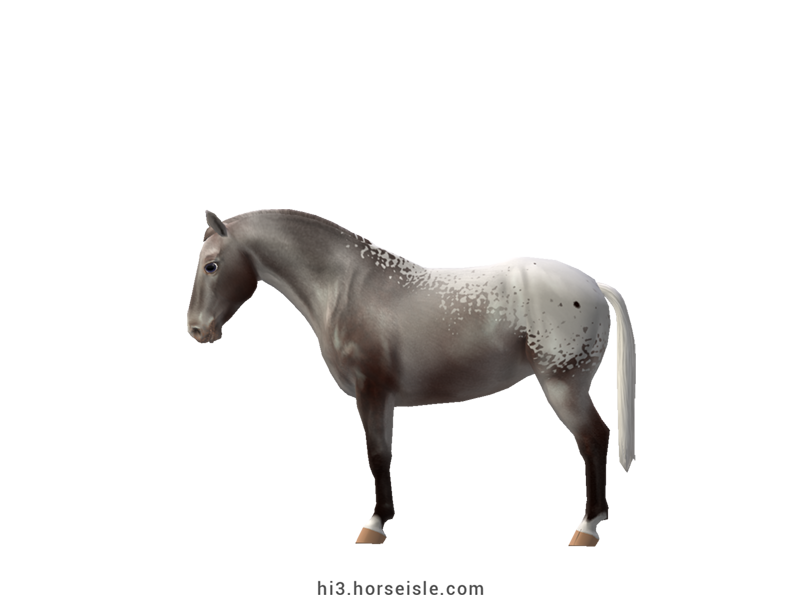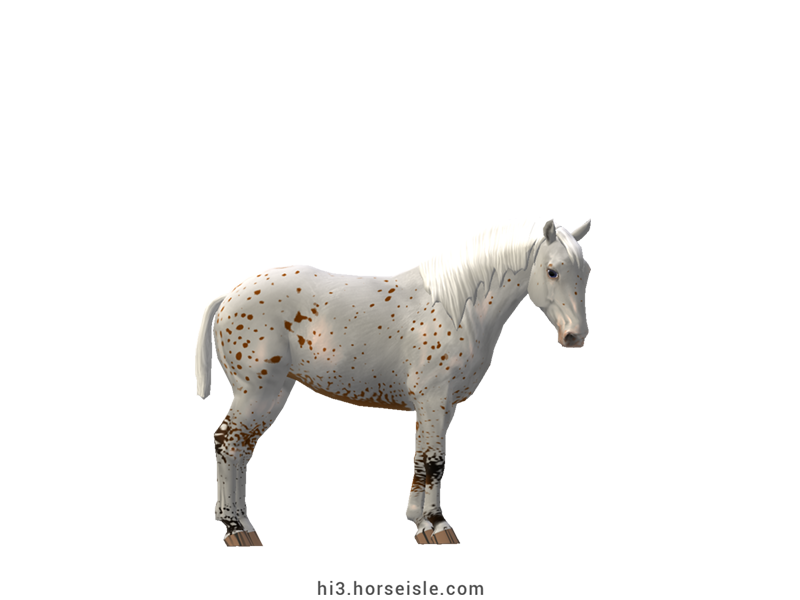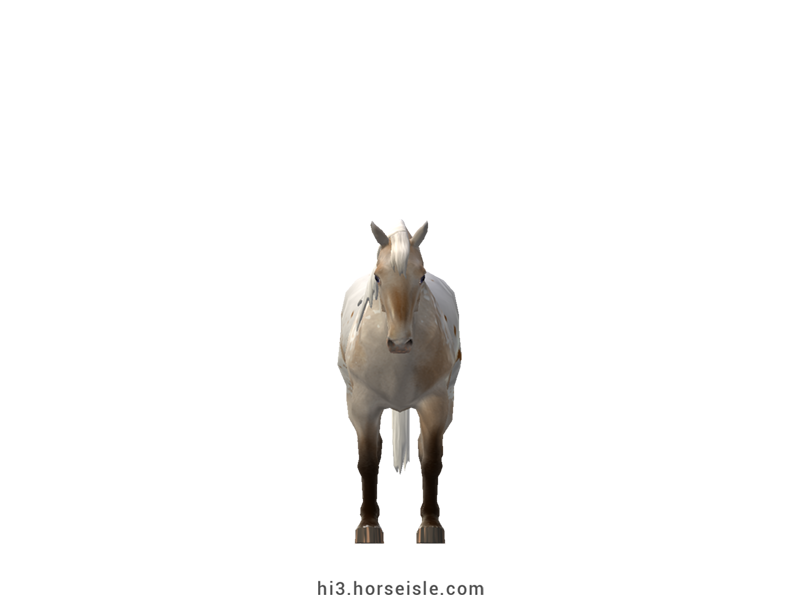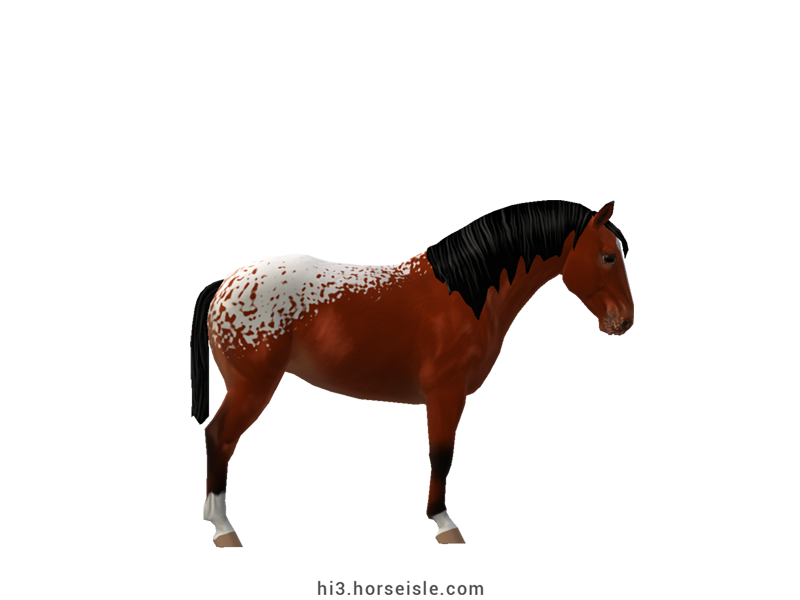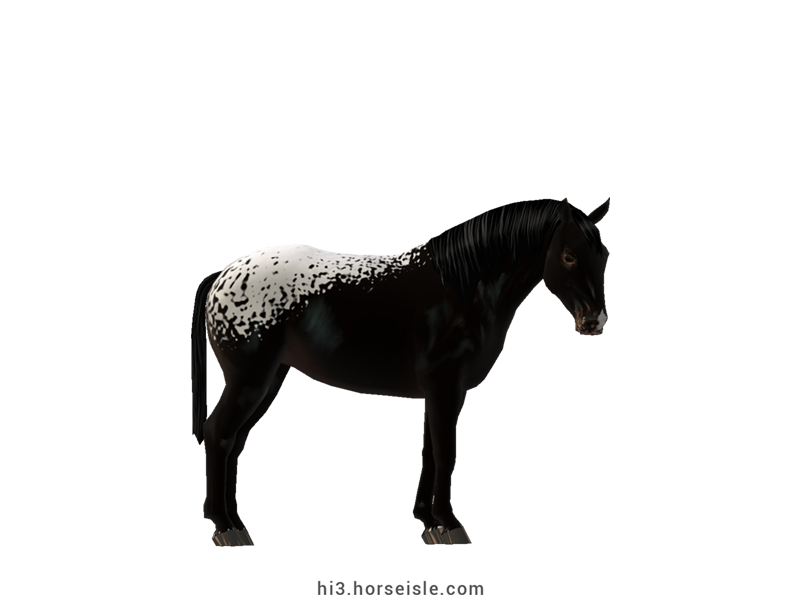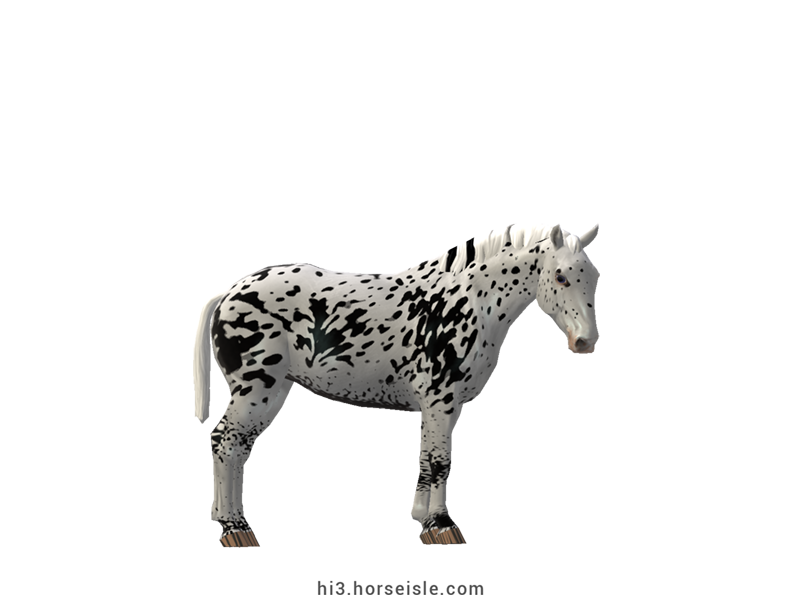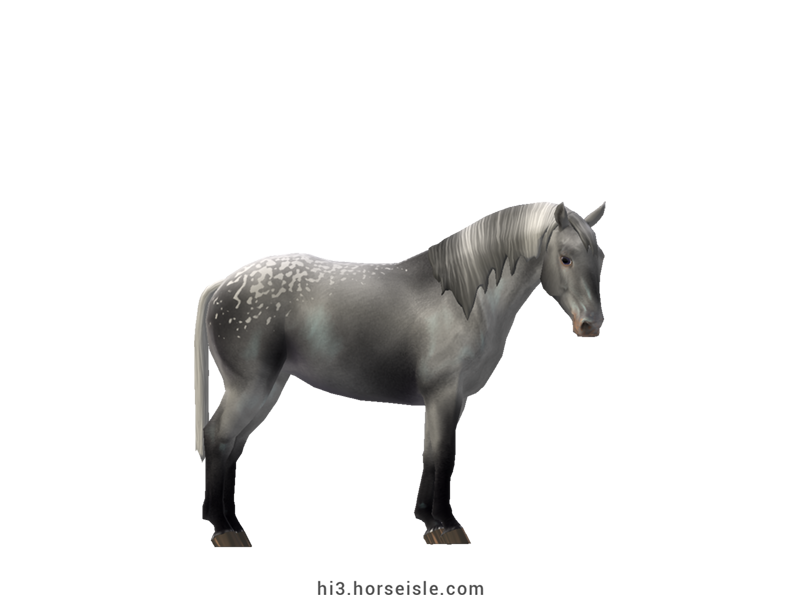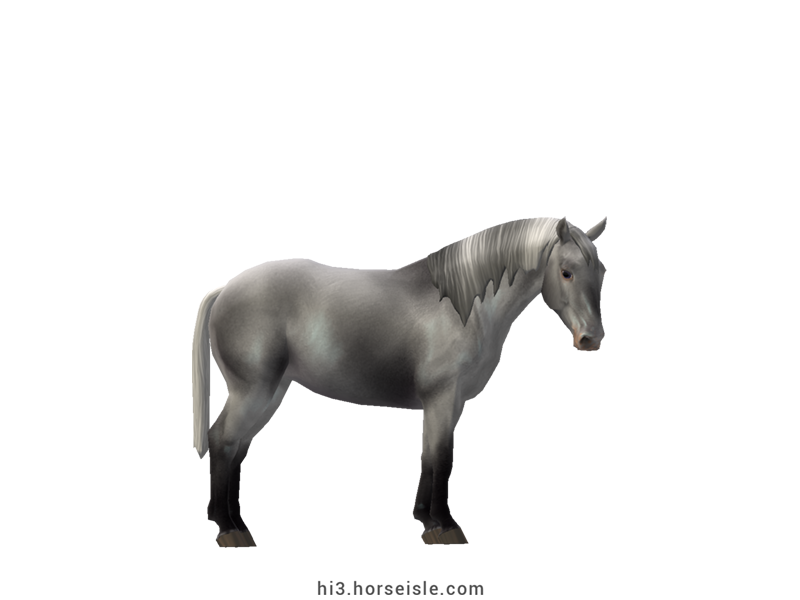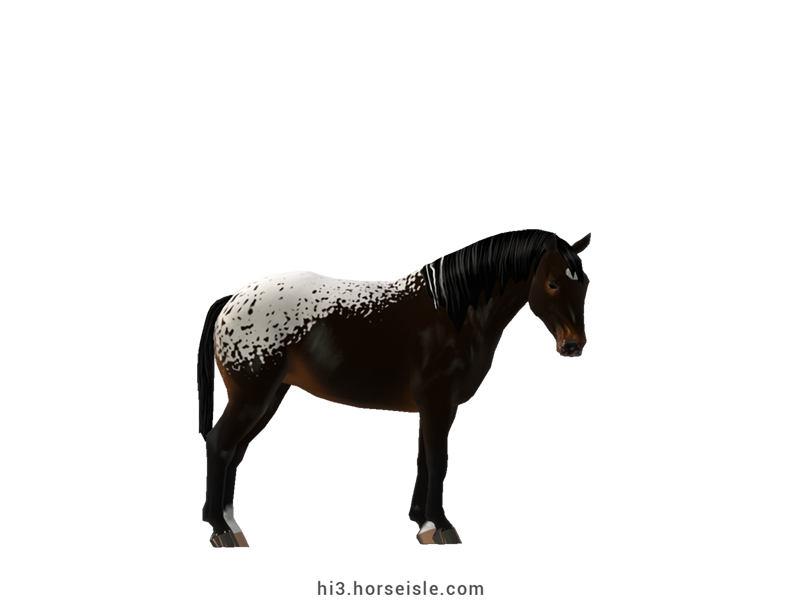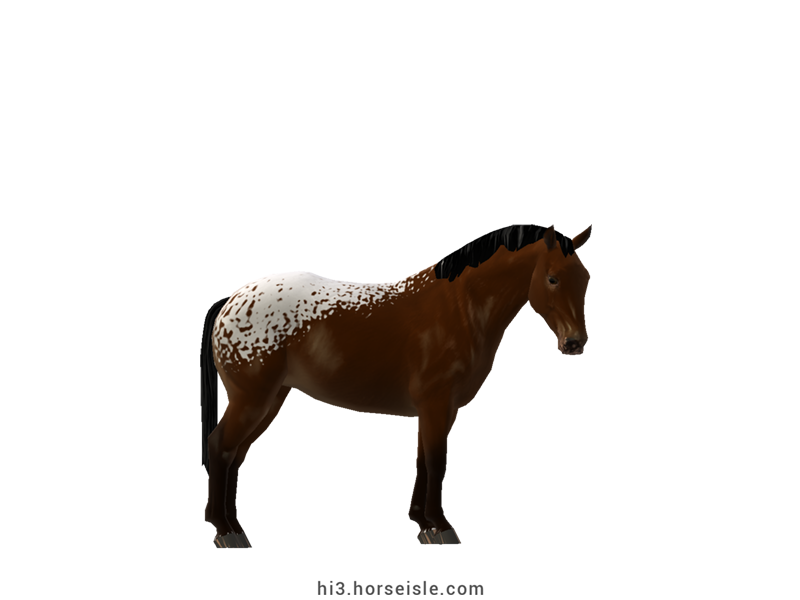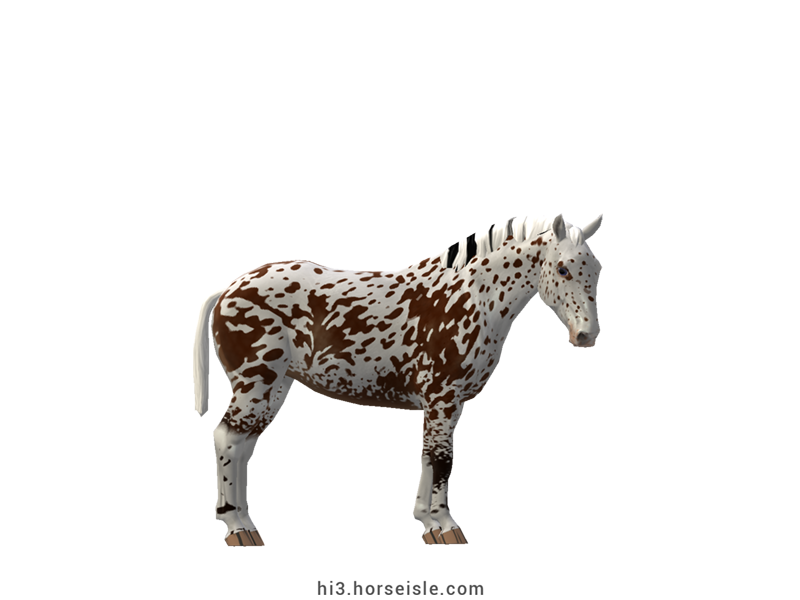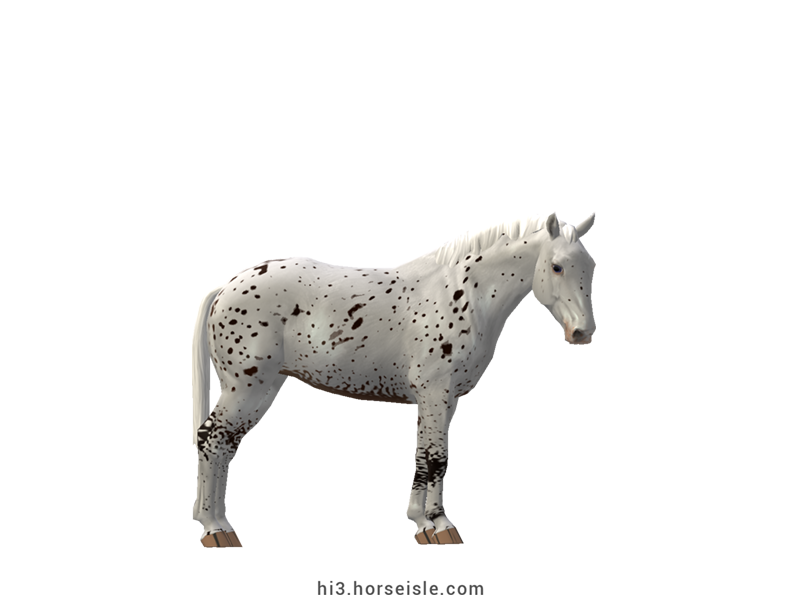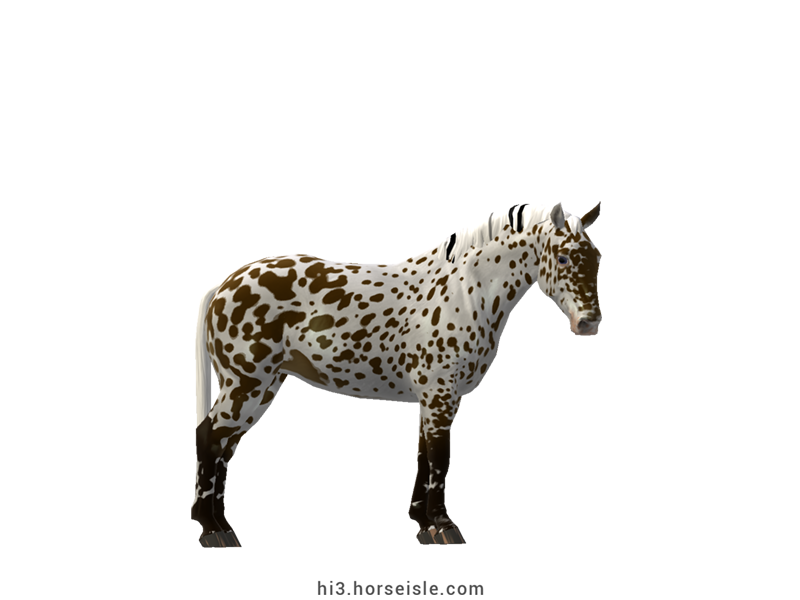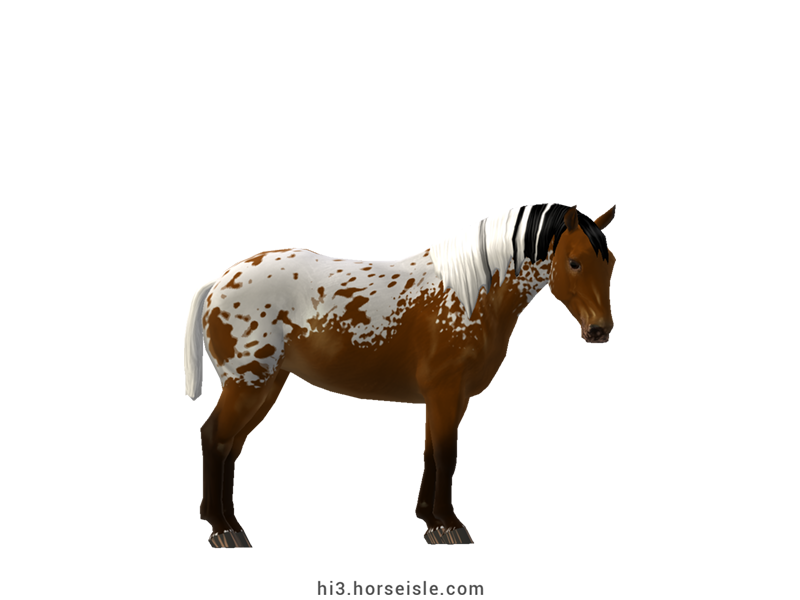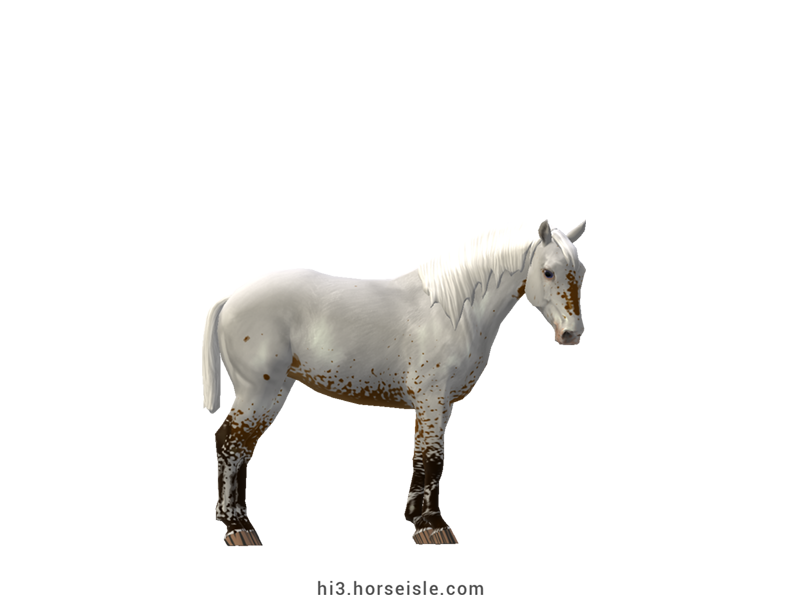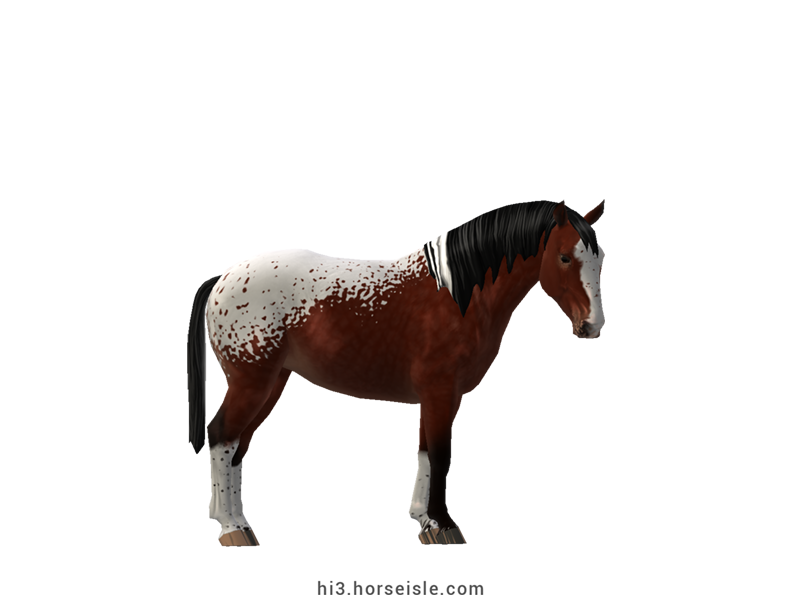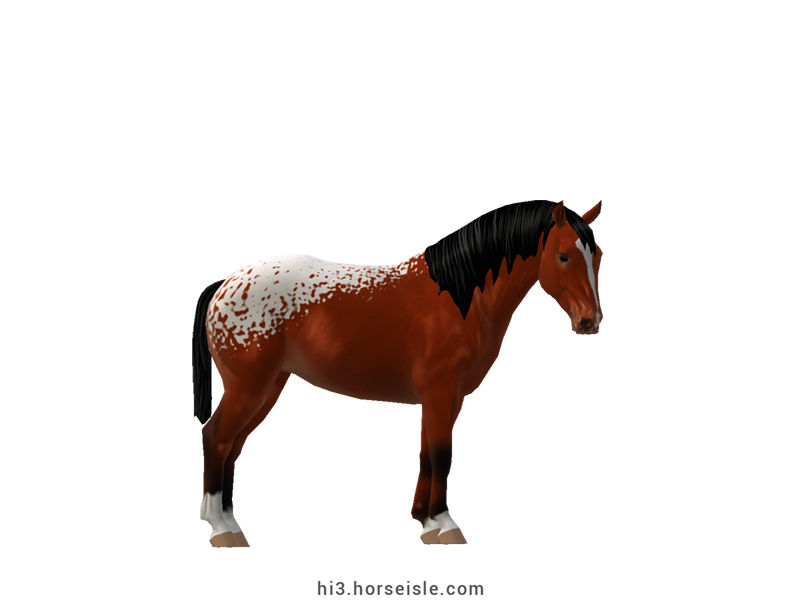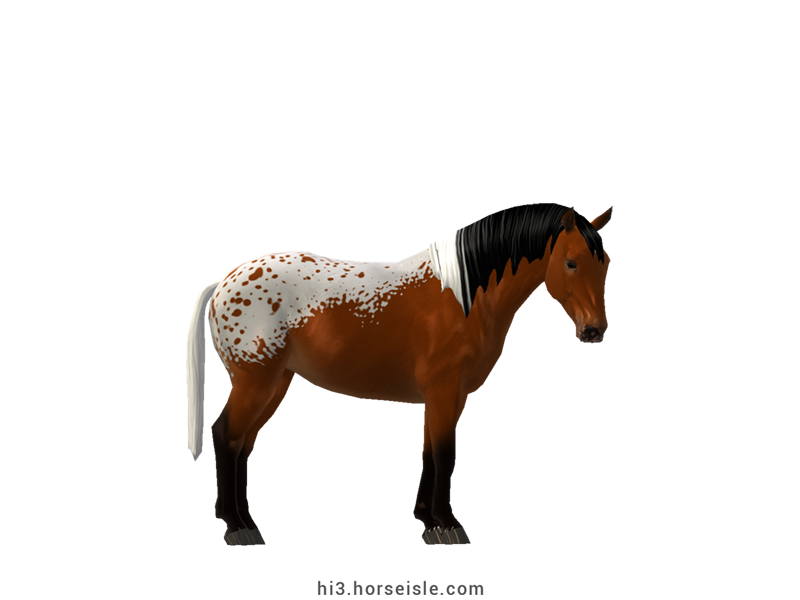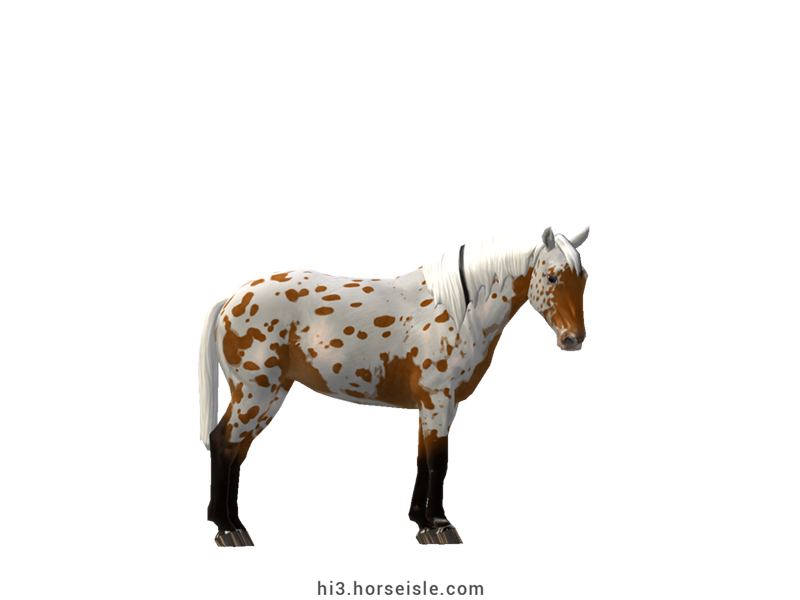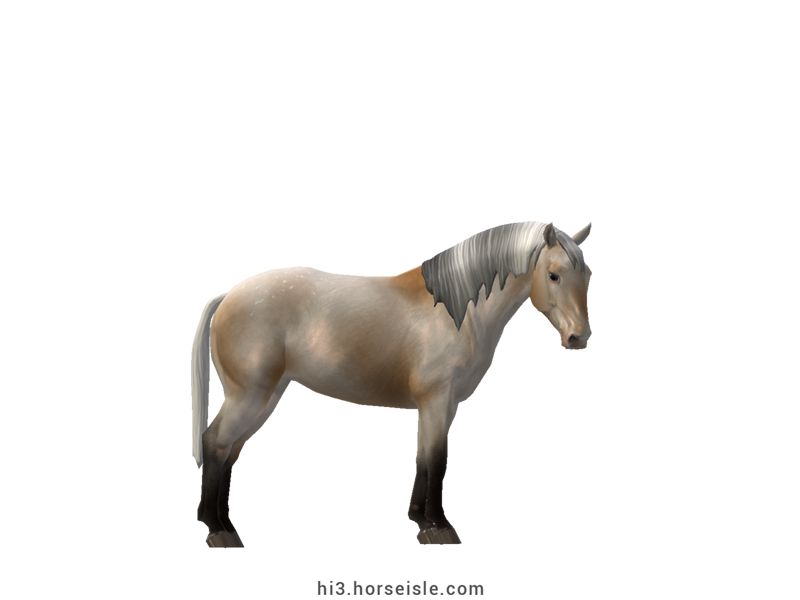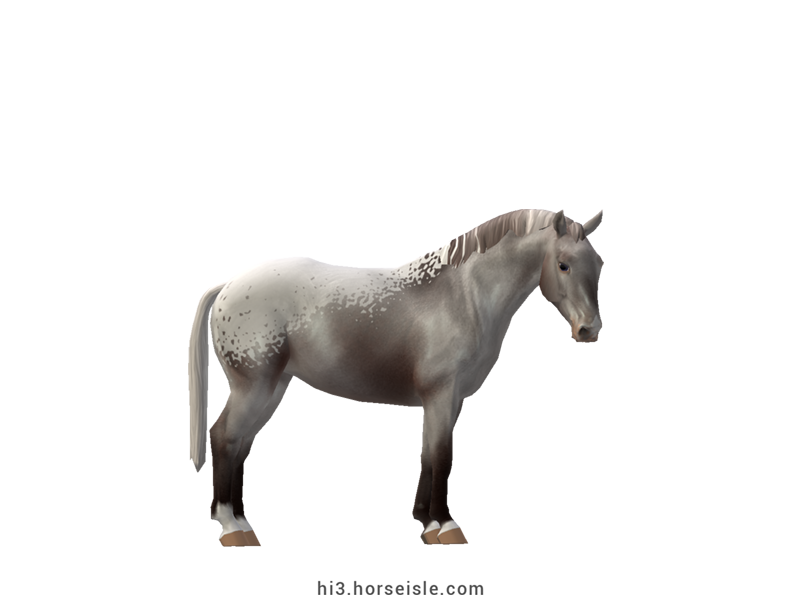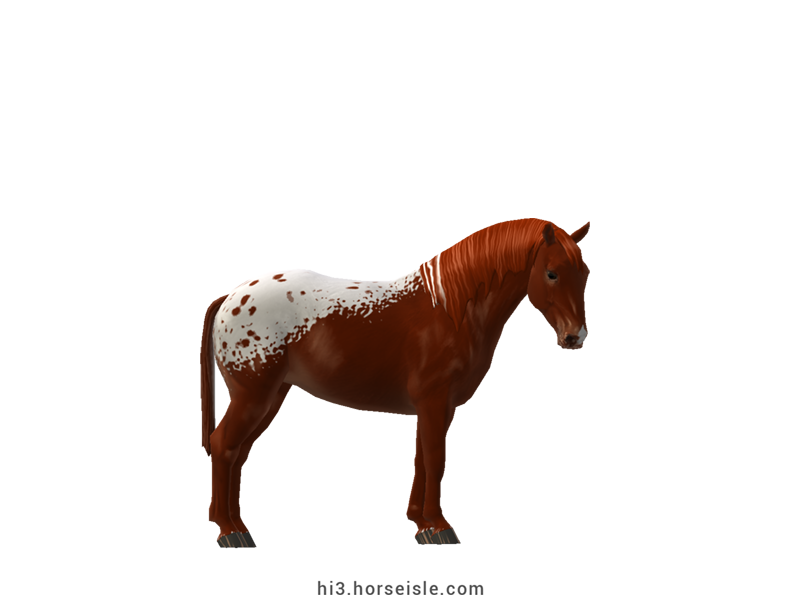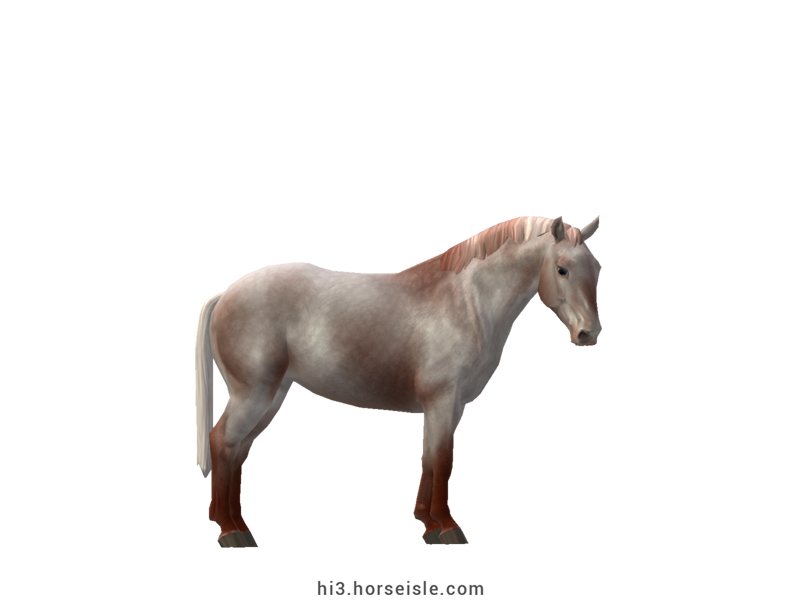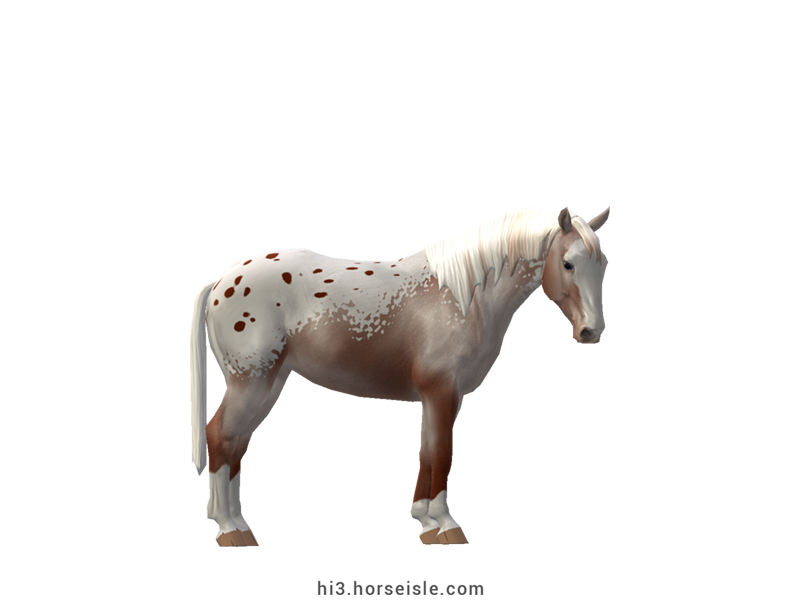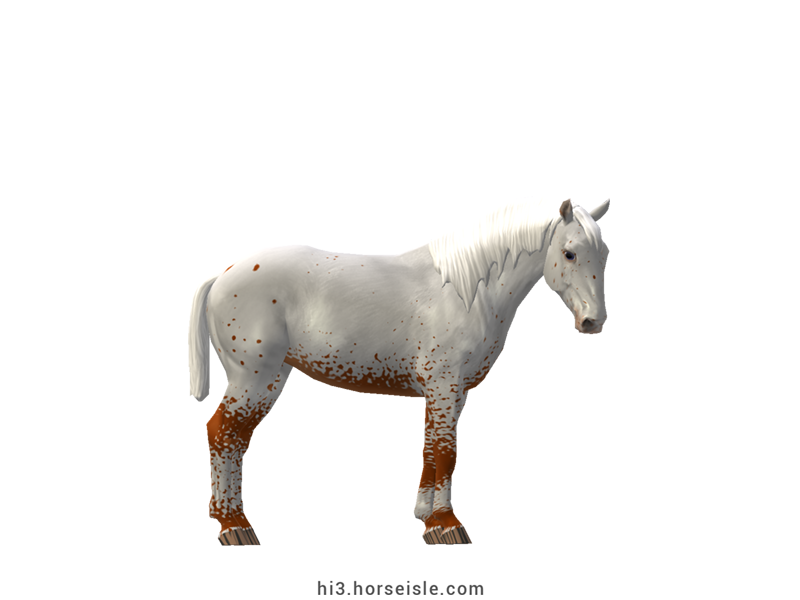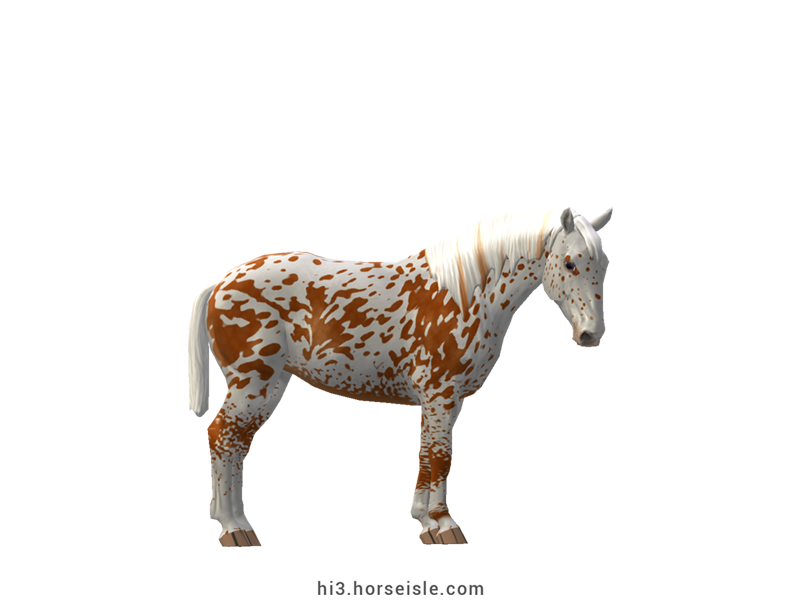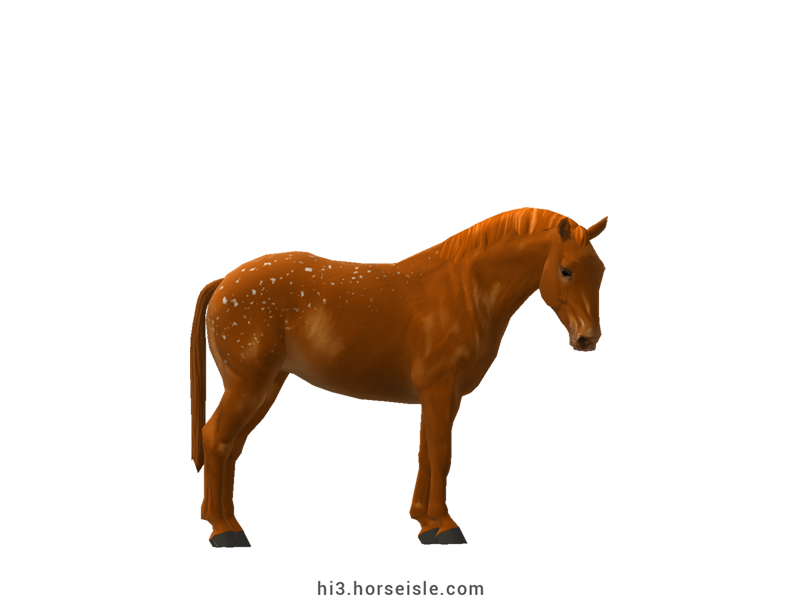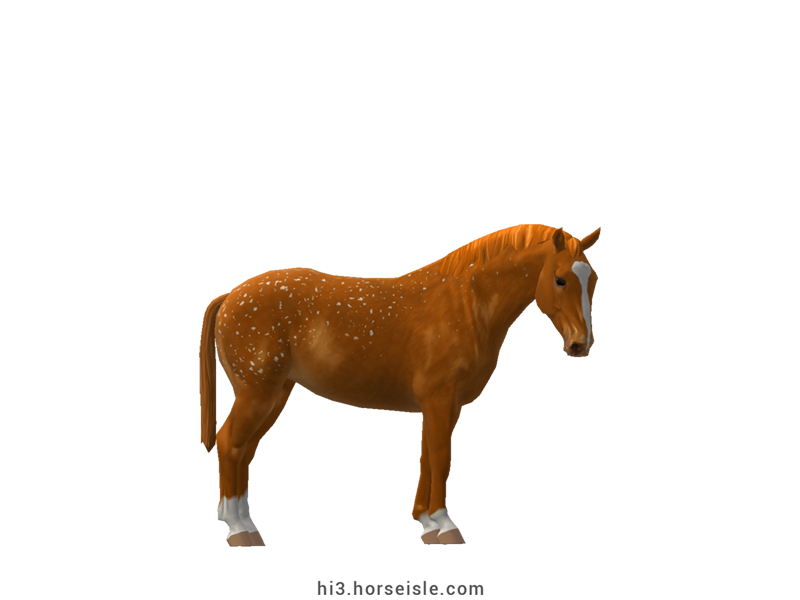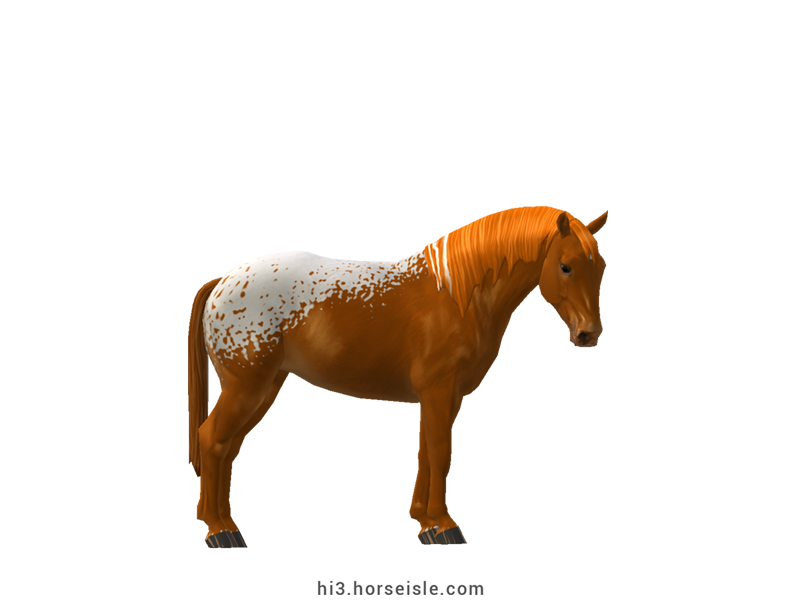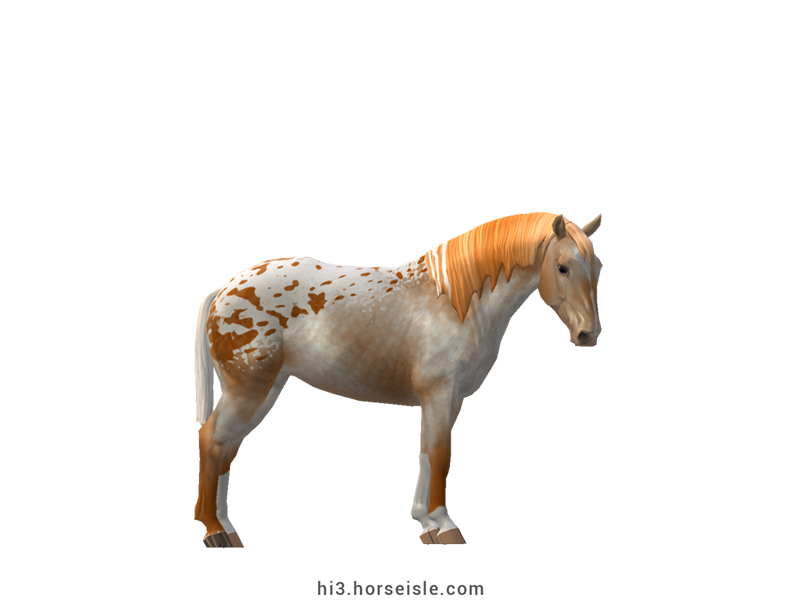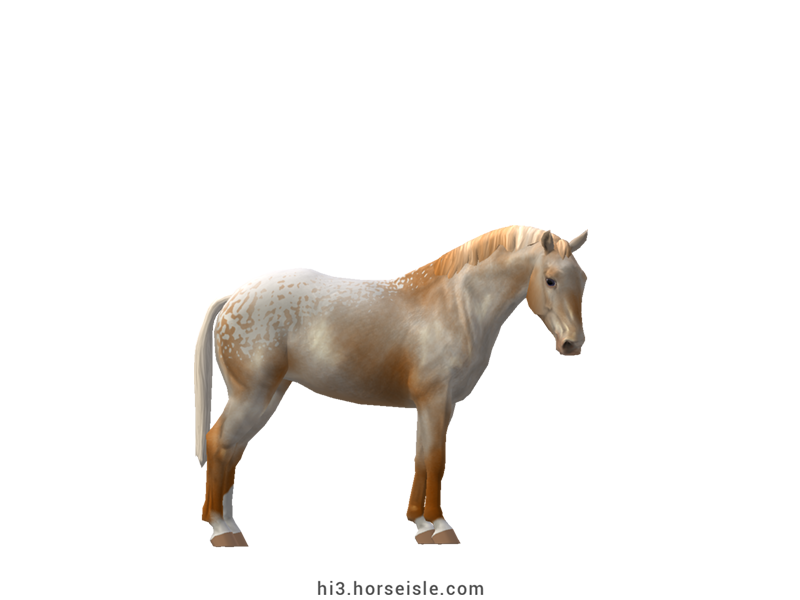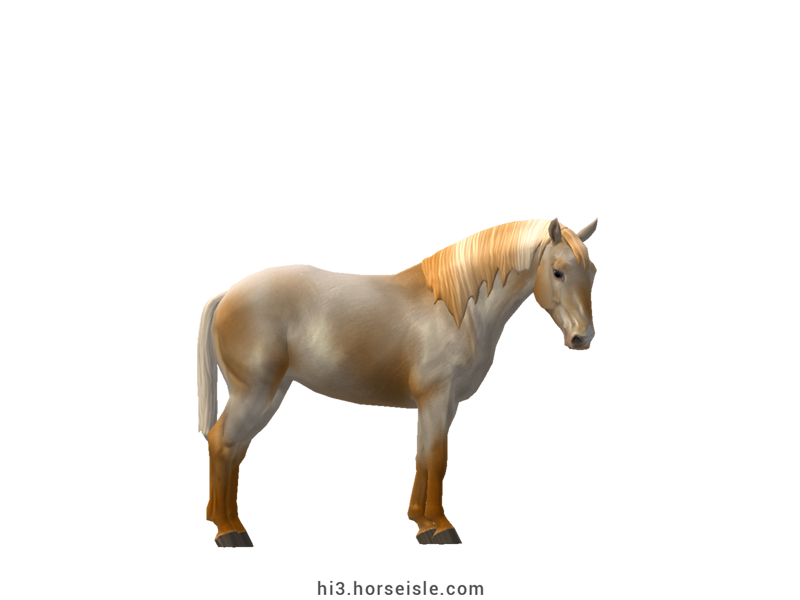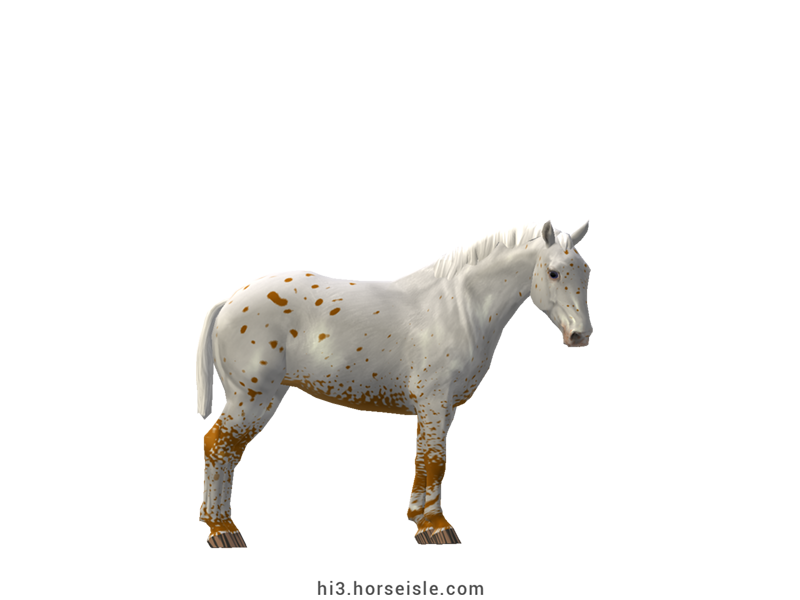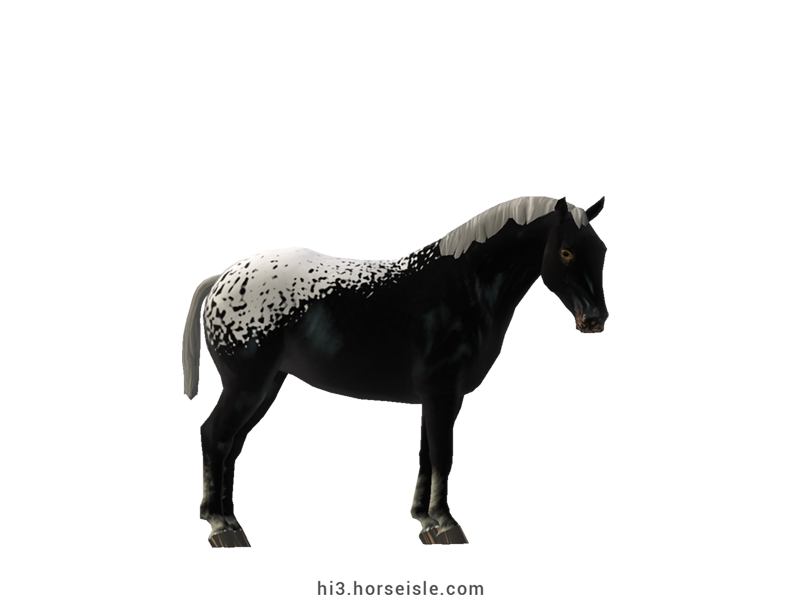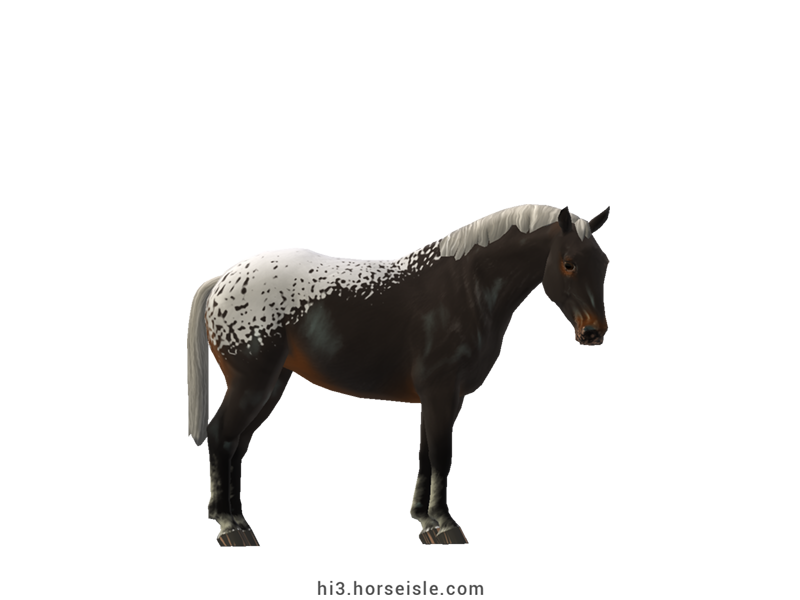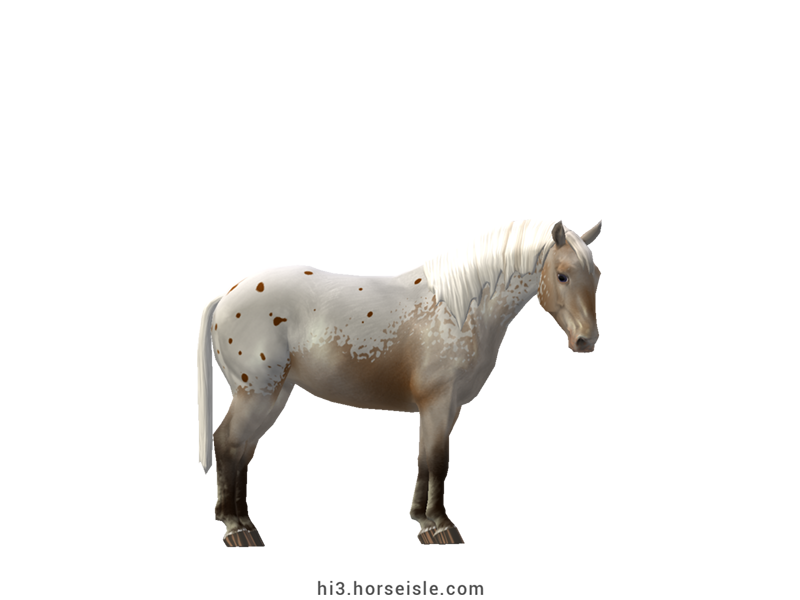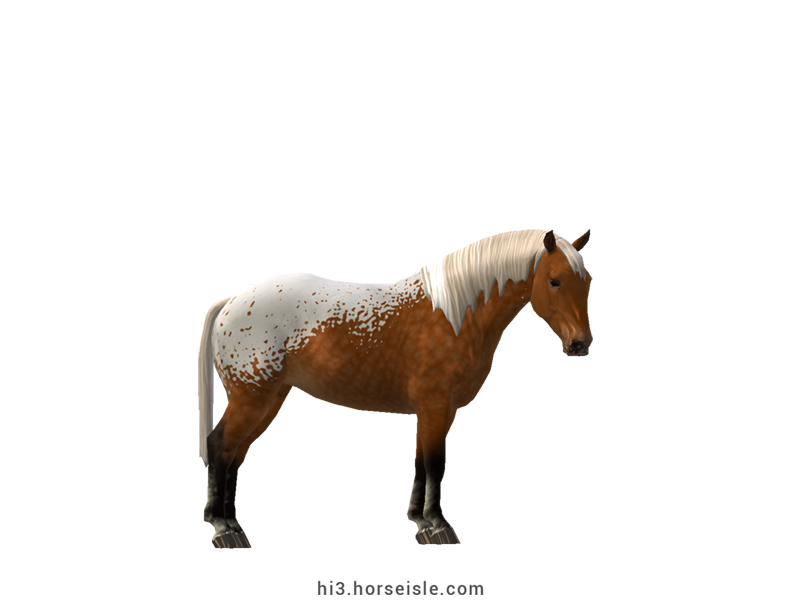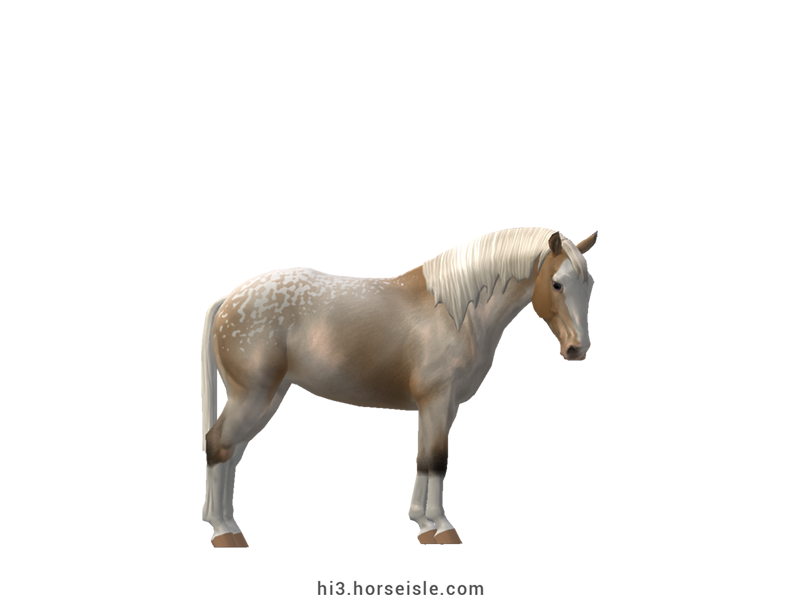Our Massive Real World Equine Reference!
[ INDEX ] Equine Type: Horse Breed: Tiger Horse (Tiger) [ PREV ] [ NEXT ]
The original Soulon:
From the 7th century to the first decade of the 10th century, China was ruled by the Tang dynasty. During this period, the Chinese crossed draft horses with native Chinese horses. This resulted in a new breed that had a spotted "appaloosa" coat, a bulky build, and supplemental gaits. This breed, which was called Soulon, went extinct after several centuries.
The original Tiger Horse:
Nearly a thousand years later, in 1992, two horse breeders, Victoria and Mark Varley, decided to recreate the Soulon horse. They relied on ancient paintings of spotted Soulon horses, as well as on documents that described these horses, to get an idea of what the original Soulon looked like.
The Varleys also learned that gaited appaloosa-colored horses existed in Spain, and were nicknamed "Tiger Horses" by the Spaniards. Many of those Tiger horses were brought to North America, and were probably the original breeding stock from which the Native Americans developed the original, ambling Appaloosa breed (see the 'Foundation Appaloosa' for more information.)
Creating the modern Tiger Horse:
To the Varleys, the quest for the spotted gaited horse became a quest to preserve the type of those original Spanish leopard ambling horses. Then, they crossed Appaloosa horses with Missouri Fox Trotters, in order to create a gaited horse with an appaloosa coat.
In 1995, the Varleys founded the Tiger Horse Breed Registry, and the breed was officially named "Tiger Horse." Horses who had an appaloosa coat, an ambling gait, and an outstanding conformation that made them look like the ideal example of a Soulon horse also received the "Soulon Seal of Approval."
Heavenly type, Royalty type, and Ghost horses:
After the first generation of Tiger horses was born, the Varleys began to select and breed them for the conformation of the Soulon horses. During this process, some foals were born non-gaited or with solid coats.
The Varleys decided to split the Tiger horse into two subtypes: the Heavenly type, which can be non-gaited and have a solid coat, and the Royalty type, which is always gaited, and can have a solid coat only if both parents are of the Royalty type.
Tiger Horses who are homozygous to the leopard allele (Lp) are called "Ghost horses," and are considered as the ideal breeding stock because their offspring always have an appaloosa coat.
NOT a Walkaloosa:
The Tiger Horse should not be confused with the Walkaloosa, which is another gaited breed with an appaloosa coat. While every gaited Tiger Horse can also be registered as a Walkaloosa, not every Walkaloosa is a Tiger Horse due to the Tiger Horse's stricter breeding rules.
Similar to Walkaloosa horses, Tiger Horses can exhibit a variety of supplemental gaits, such as the fox-trot, running-walk, stepping-pace, and more.
The Tiger Horse today:
Today, the Tiger Horse is relatively well established, and the stock of Tiger Horses is large enough to allow for a closed studbook. Heavenly and Royalty subtypes can be crossed with each other, especially if they both have the desired conformation. Solid-colored and non-gaited horses are eligible for registration only if they are the progeny of Tiger Horses.
Breeding Tiger Horses in Horse Isle:
In Horse Isle, the breeding rules for Tiger Horses are a bit different. First, both Royalty and Heavenly type are always gaited. Second, because Tiger Horses are preferred to have an appaloosa coat, Royalty Tigers always have an appaloosa coat, while Heavenly Tigers always have a solid coat.
Those rules allow separating between these subtypes as they overlap in their conformation, and allow breeders to cross the two subtypes together and always get a Tiger foal of one of the subtypes.
Conformation:
The conformation of Tiger Horses is of Iberian type. It is characterized by a head with a straight or convex profile, large eyes, medium ears that can be slightly curved inwards, an arched and muscular high-set neck that is medium or long in length, a short back, a muscular croup, a deep girth, and a wide body that is somewhat bulky.
The mane is short or medium in length, and the hair is thin and straight or wavy. The tail is thin and is often short, with many Tigers having rat tails.
Performance metrics:
The following are the: range, average, (SD), and MOE of performance metrics of ordered Tiger Horses in Horse Isle (not bred ones). In rare cases,
Speed: 14.6-16.2, 15.3 (0.3), 0.07.
Sprint: 43-57, 50 (3), 0.56.
Accel: 0.85-1.05, 0.95 (0.04), 0.01.
Decel: 0.90-1.03, 0.97 (0.03), 0.01.
Jump: 4.84-5.13, 5.01 (0.06), 0.01.
Pull: 2.20-2.90, 2.59 (0.15), 0.03.
Turning: 48.28-62.73, 54.73 (2.97), 0.58.
Reverse: 2.4-3.0, 2.7 (0.1), 0.03.
Stamina: 44.28-50.30, 47.20 (1.25), 0.24.
Reaction: 0.74-0.83, 0.79 (0.02), 0.00.
Coats & Height:
Colors: bay, black, brown, chestnut, and silver dapple.
Additionals: flaxen, rabicano, roan, sooty, all rare patterns. The coat is always leopard (except for Heavenly Tigers.)
Height: 14hh to 16hh.
* Most Tiger horses stand between 14.2hh and 15.2hh.
[ INDEX ] [ PREV ] [ NEXT ]

